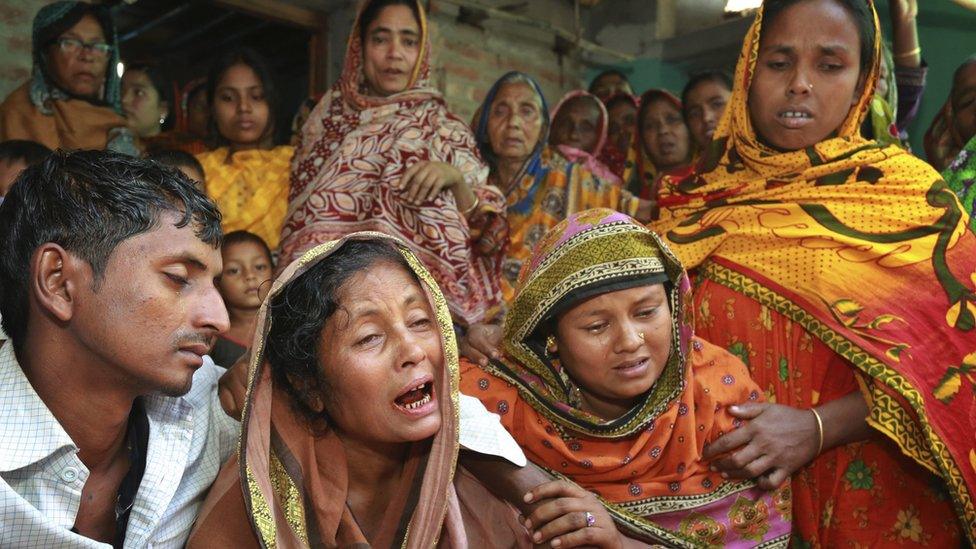Bangladesh arrests 900 in crackdown on Islamist militants
- Published
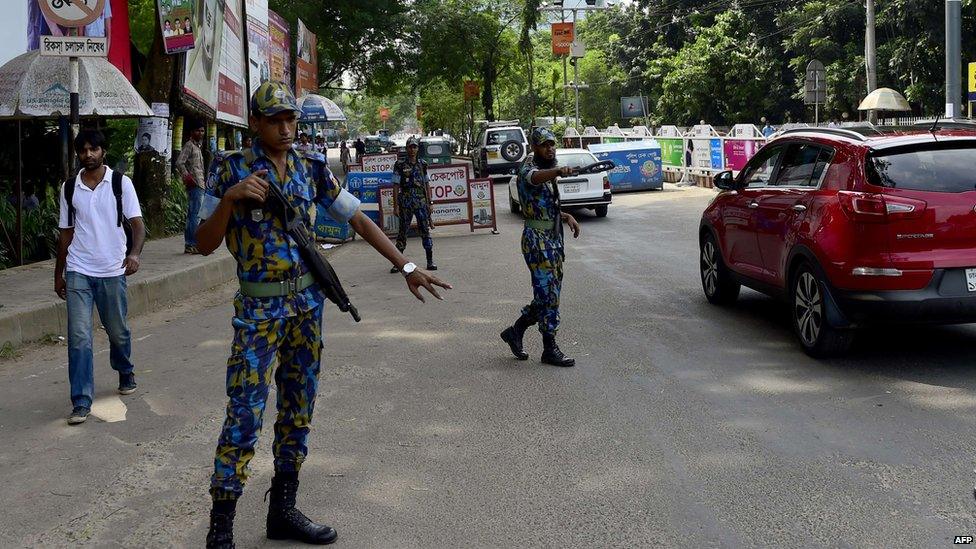
Tight security has been in place since the wave of attacks began
Bangladesh police say they have detained about 900 people as part of a crackdown on militants following a series of deadly attacks.
Police launched the week-long campaign on Friday, saying they were focused on arresting Islamist militants.
About 40 people, including secular bloggers, academics and members of religious minorities, have been killed in attacks in the past few years.
On Friday, a Hindu monastery worker was hacked to death in Pabna district.
Nityaranjan Pande, who was in his 60s, died on the spot after several people attacked him, reports said.

Analysis: Sabir Mustafa, Editor, BBC Bengali
The police drive is sweeping up various types, not just terror suspects. Police are using lists of wanted criminals, but say the main goal is to disrupt the terror networks.
It will be several days before it becomes clear whether they have managed to arrest members of the groups carrying out the sectarian killings.
The government says home-grown militants with links to opposition parties such as the BNP and Jamaat-e-Islami are seeking to destabilise the country.
More recently, a government minister even suggested that Israeli intelligence was behind the killings, alleging that a senior BNP leader had recently met a Mossad operative in India.
The opposition leader, Aslam Chowdhury, is now in jail facing treason charges. The Israeli in question turned out to be a former adviser to an Israeli minister who heads a public advocacy programme.
Many people worry that the government is trying to use these attacks to batter an already weakened political opposition.

In the past week, a Hindu priest, a Christian grocer, and the wife of an anti-terror police officer were all killed in attacks by suspected Islamist militants.
Secular bloggers, academics, gay rights activists, and other members of religious minorities are also among those to have been killed in recent months.
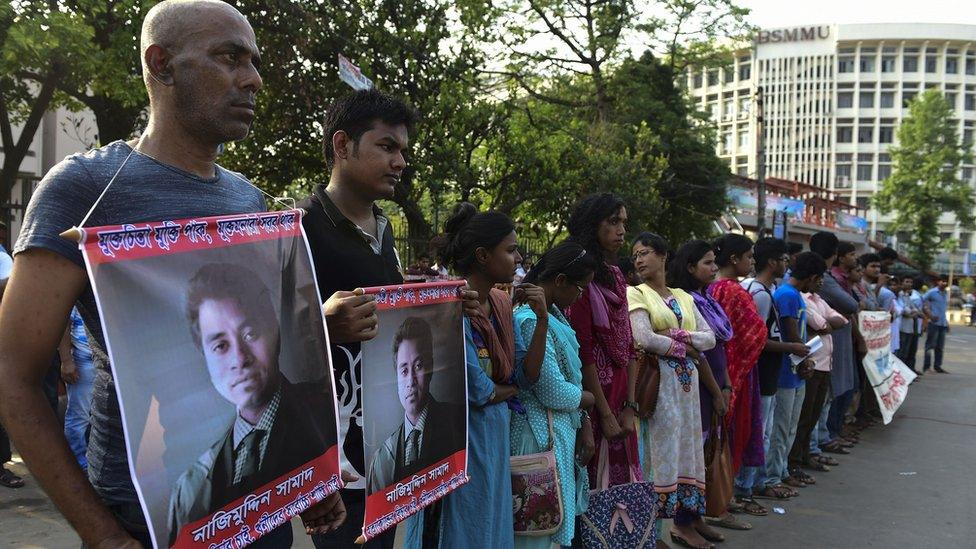
Regular protests have been held following the attacks on secular bloggers and minorities
Police say they have made a list of suspects wanted for more than 40 targeted killings over the past three years, based on intelligence reports.
However, not all of the 900 people arrested are suspected militants, Shahidur Rahman, Deputy Inspector General of Police, told BBC Bengali.
Who is behind the Bangladesh killings?
Is extremism on the rise in Bangladesh?
Lurching from secularism to sectarian terror?
"Many of them are suspected for other regular crimes. Police will interrogate them and try to find who is responsible for what," he said.
Correspondents say petty criminals may be among those detained as the authorities believe they could have information about the militants. Some of those held are likely to be freed after questioning.
Analysts say the killing of a police officer's wife on Sunday may have triggered the crackdown.
Shahidul Hoque, inspector general of police, vowed on Thursday that those responsible for killing her would be "brought to justice very soon".

Who is being targeted?
Secular bloggers, academics, gay rights activists, and members of religious minorities including Shia, Sufi and Ahmadi Muslims, Christians and Hindus have all been killed, many of them hacked to death.
A university professor whose family said he was not an atheist was murdered in April, suggesting the list of those at risk had widened further.
Who exactly is behind the attacks remains unclear. Bangladesh has myriad extremist groups and there have been few convictions over the attacks.
Many of the attacks have been claimed by so-called Islamic State (IS) or al-Qaeda linked groups.
However, the government has disputed these claims. Instead, government members have blamed opposition parties and local Islamist groups. Bangladesh's home minister has suggested an Israeli link to the killings, describing an "international conspiracy" against Bangladesh.
Both the opposition and the Israeli government have denied any involvement - and Israel described the accusations as "utter drivel".
Until the killings stop the government itself will face accusations of not doing enough to protect minorities in the Sunni-dominated nation.

- Published5 May 2016
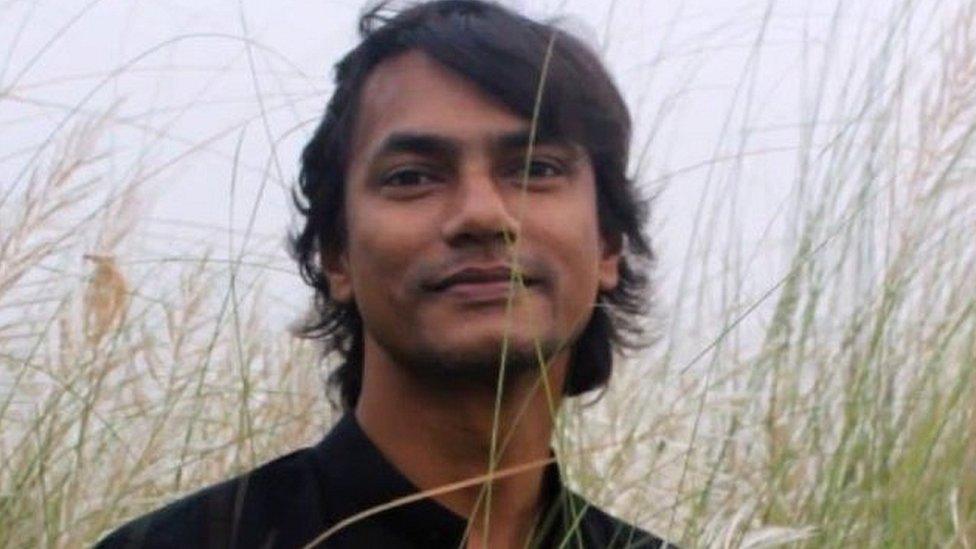
- Published2 May 2016
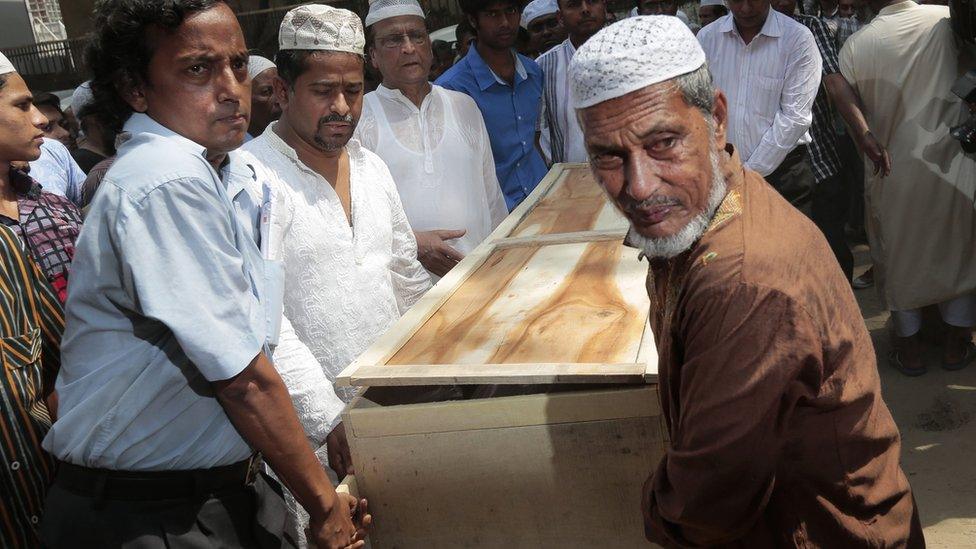
- Published1 December 2015
